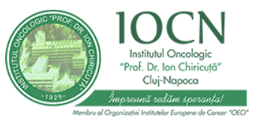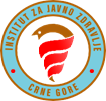WP6 – Implementation of cervical cancer screening 
Romania launched its cervical screening program in 2012 for the target population 25-64 years old to be primarily tested with cytology at a 5-year interval. This programme achieved its objectives only partially (coverage of 13% of the target population) due to a number of issues, including low funding, lack of management tools such as a population registry with a proactive invitation system, or a screening registry. A European funded project was defined starting 2018 to develop the tools needed for increasing the effectiveness of the implementation of an organized, population cervical cancer screening program. Thus, a number of tools are in the process of being developed: definition of clinical guidelines, setting up a screening registry, training of medical staff to use the clinical guidelines, assessment of knowledge and attitudes of women with regard to cancer screening, definition of a national awareness campaigns, etc.
Follow up implementation programs are also defined and due to be funded also from European structural funds for 4 pilot regions of the country (one of the Regions being the North West Region where the program is managed by the Institute of Oncology Cluj Napoca-IOCN). These programs are allocating funds for effectively funding equipment and the needed clinical tests in the cervical cancer screening programme until December 2023.
The purpose of the IOCN participation in EUTOPIA-EAST project is to accompany the pilot implementation in the 4 pilot regions and, together with the European colleagues, to facilitate the process of refining the tools needed for appropriate data collection, to monitor the implementation of cervical cancer screening guidelines, to define appropriate quality / benchmark indicators, to perform adequate data analysis in order to feed back to practitioners, increase their adherence to the evidence based guidelines, increase the effectiveness of our program.
In collaboration with WP 2, 3 and 4, data will be collected on demography, cancer epidemiology, current screen performance indicators and costs. The actions in the road map will be implemented. We hypothesize that monitoring and quality assurance and the involvement of minority groups will be important topics to include in the possible scenarios and road maps. The outcomes of the implementation will be monitored and the model and road maps will be adjusted to aim for scaling up the interventions and to provide evidence to convince policy makers to the need to ensure sustainable funding.











